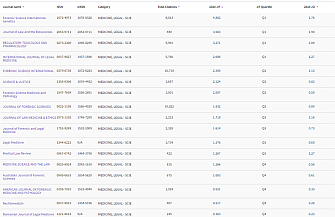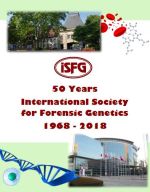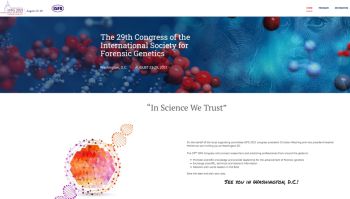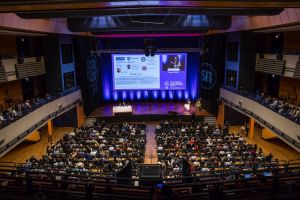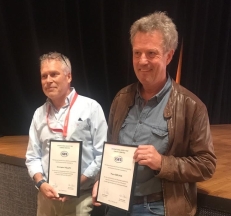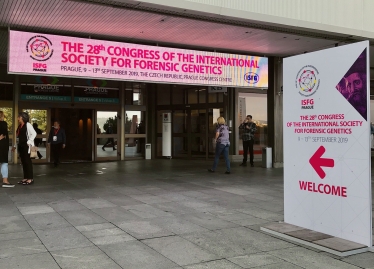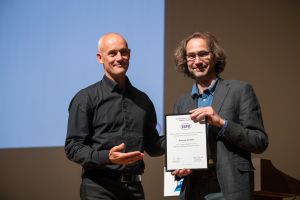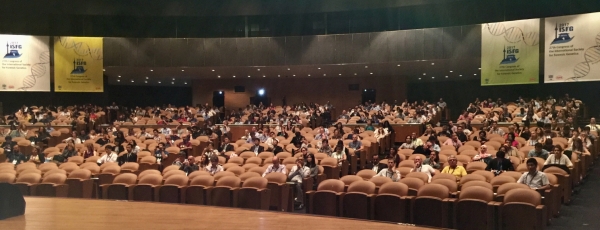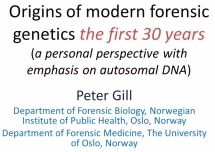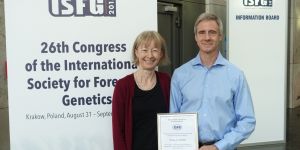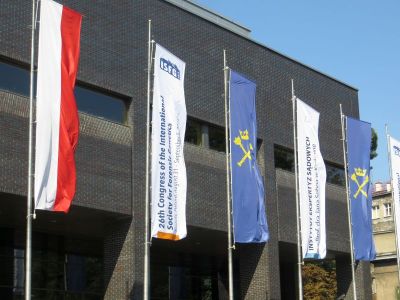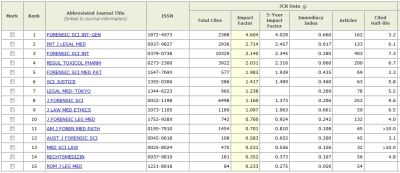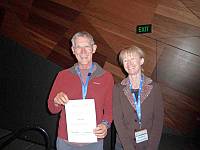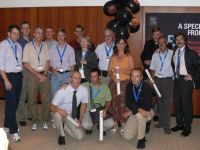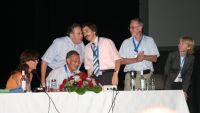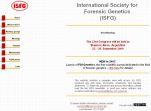News
International Summer Course 2026 – Copenhagen University
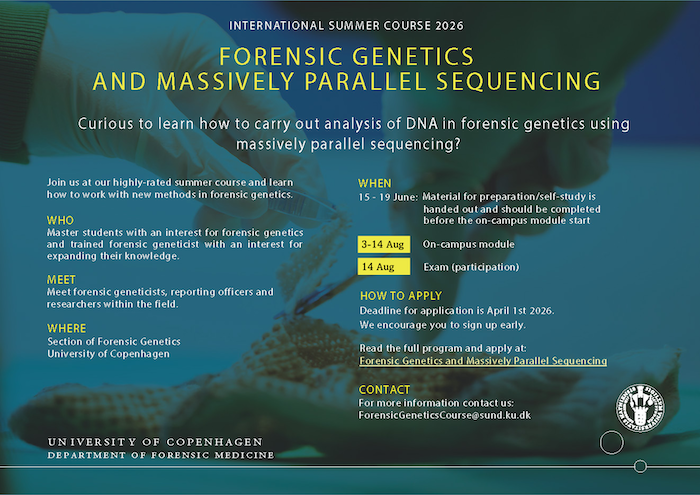
Posted 1 day and 6 hours ago by Cíntia Alves (Last modified 1 day and 6 hours ago)
Read all about it!
Posted 2 months and 14 days ago by Cíntia Alves (Last modified 2 months and 14 days ago)
ISFG Mini Symposia | IMS

Posted 2 months and 26 days ago by Cíntia Alves (Last modified 2 months and 26 days ago)
ISFG Mini Symposia | IMS

Posted 2 months and 26 days ago by Cíntia Alves (Last modified 2 months and 14 days ago)
New call for Peter M. Schneider ISFG Fellowships, 2025
Posted 4 months and 3 days ago by Cíntia Alves (Last modified 4 months and 3 days ago)
ISFG Latest News is out!
Posted 4 months and 24 days ago by Cíntia Alves (Last modified 4 months and 24 days ago)
Proceedings of the 30th Congress of the ISFG - Revised Edition
Posted 5 months and 2 days ago by Cíntia Alves (Last modified 5 months and 2 days ago)
GHEP-OS | 3rd Edition Online School in October 2025
Posted 6 months and 13 days ago by Cíntia Alves (Last modified 6 months and 13 days ago)
Hot off the press!
Posted 8 months and 13 days ago by Cíntia Alves (Last modified 8 months and 13 days ago)
Elected as a member of the ACADEMIA EUROPAEA - Manfred Kayser
Posted 8 months and 13 days ago by Cíntia Alves (Last modified 8 months and 13 days ago)
CaDNAP Meeting 2025
Posted 10 months and 18 days ago by Cíntia Alves (Last modified 10 months and 18 days ago)
ISFG Summer School | Virtual Edition 2025
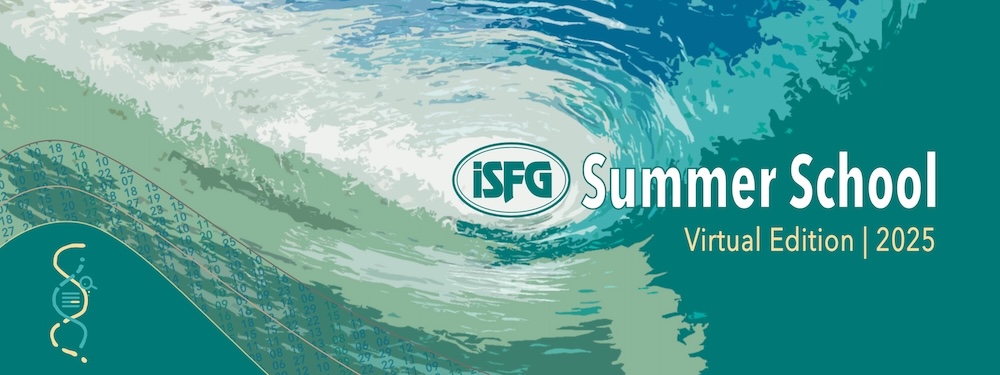
Posted 11 months and 22 days ago by Cíntia Alves (Last modified 10 months and 26 days ago)
The first Newsletter for 2025 is out!
Posted 1 year and 1 day ago by Cíntia Alves (Last modified 11 months and 24 days ago)
International Summer Course 2025 – Copenhagen University
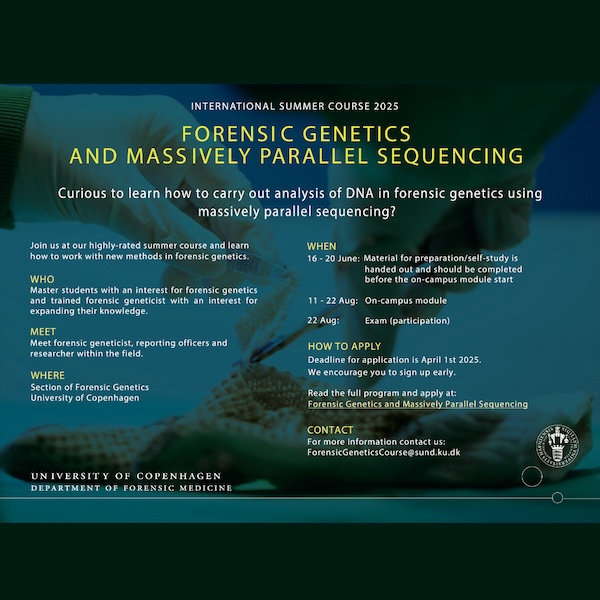
Posted 1 year and 1 month ago by Cíntia Alves (Last modified 1 year and 1 month ago)
The new ISFG Executive Committee
Posted 1 year and 1 month ago by Cíntia Alves (Last modified 1 year and 1 month ago)
Happy New Year!

Posted 1 year and 1 month ago by Cíntia Alves (Last modified 1 year and 1 month ago)
NIST Publishes Report on DNA Mixture Interpretation Methods
Posted 1 year and 1 month ago by Cíntia Alves (Last modified 1 year and 1 month ago)
Happy Holidays! The December 2024 Newsletter is out!
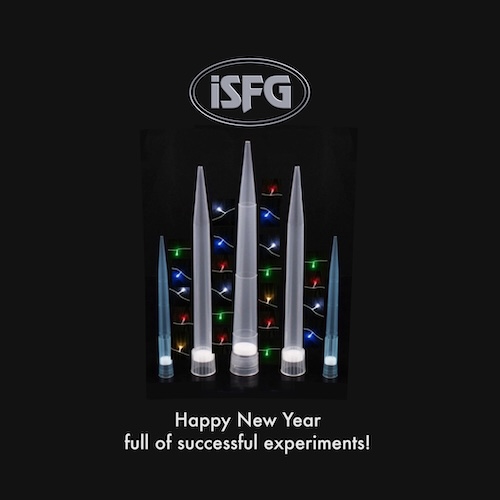
Posted 1 year and 2 months ago by Cíntia Alves (Last modified 1 year and 2 months ago)
STRAF - New version available
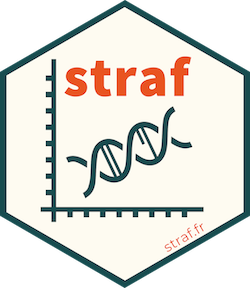
Posted 1 year and 2 months ago by Cíntia Alves (Last modified 1 year and 2 months ago)
GHEP-OS | 2nd Edition Online School in March 2025
Posted 1 year and 2 months ago by Cíntia Alves (Last modified 1 year and 2 months ago)
Essentials of DNA Interpretation - short course - New edition
Posted 1 year and 4 months ago by Cíntia Alves (Last modified 1 year and 4 months ago)
Read all about it! The September 2024 Newsletter is out!
Posted 1 year and 5 months ago by Cíntia Alves (Last modified 1 year and 5 months ago)
NIST Publication | Strategic Opportunities to Advance Forensic Science in the US
Posted 1 year and 5 months ago by Cíntia Alves (Last modified 1 year and 5 months ago)
New call for Peter M. Schneider ISFG Fellowships, 2024
Posted 1 year and 5 months ago by Cíntia Alves (Last modified 1 year and 5 months ago)
Our June 2024 Newsletter is out!
Posted 1 year and 8 months ago by Cíntia Alves (Last modified 1 year and 8 months ago)
1st International meeting on Sudden Cardiac Death in the Balkan area
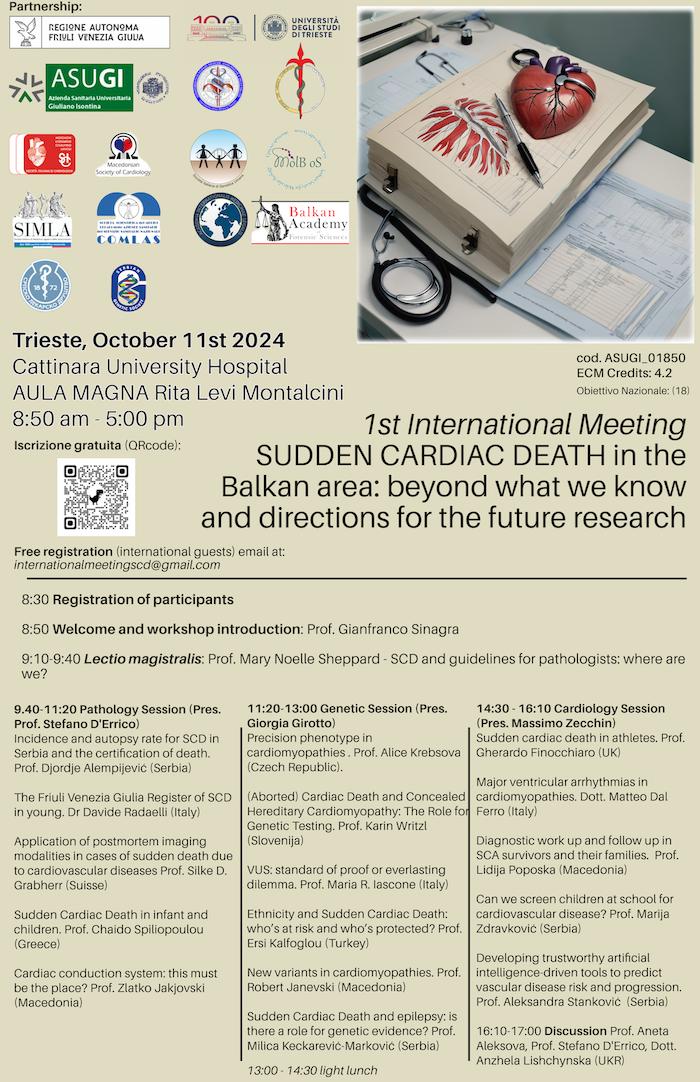
Posted 1 year and 8 months ago by Cíntia Alves (Last modified 1 year and 8 months ago)
GeFI – New Recommendations - Sexual Violence Working Group
Posted 1 year and 9 months ago by Cíntia Alves (Last modified 1 year and 9 months ago)
First Report by the Forensic Databases Advisory Board (FDAB) – Revised version, September 2023
Posted 2 years and 1 day ago by Dr. Lourdes Prieto Solla (Last modified 2 years and 1 day ago)
PMS Forensic Genetics Facebook Group
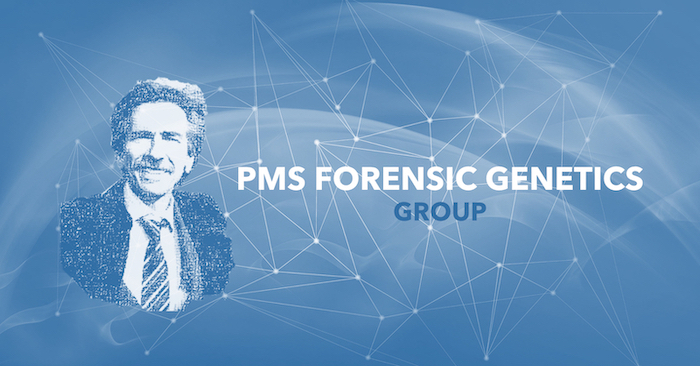
Posted 2 years and 1 month ago by Dr. Lourdes Prieto Solla (Last modified 2 years and 1 month ago)
Peter M. Schneider Tributes
Posted 2 years and 1 month ago by Dr. Lourdes Prieto Solla (Last modified 2 years and 1 month ago)
New Proficiency Test from the Arabic Speaking WG!!
The proficiency testing scheme is jointly provided by the Institute for Forensic Molecular Genetics (IFMG) & Dubai Police International Center for Forensic Sciences (ICFS, https://icfs.ac.ae/). As this testing scheme is being introduced for the first time, we are delighted to inform laboratories that the PT (available in English) is open to all laboratories and that there are no costs associated with participating in it.
Posted 2 years and 2 months ago by Dr. Lourdes Prieto Solla (Last modified 2 years and 2 months ago)
Essentials of DNA Interpretation - short course
Posted 2 years and 2 months ago by Cíntia Alves (Last modified 2 years and 2 months ago)
New DNA Commission recommendations
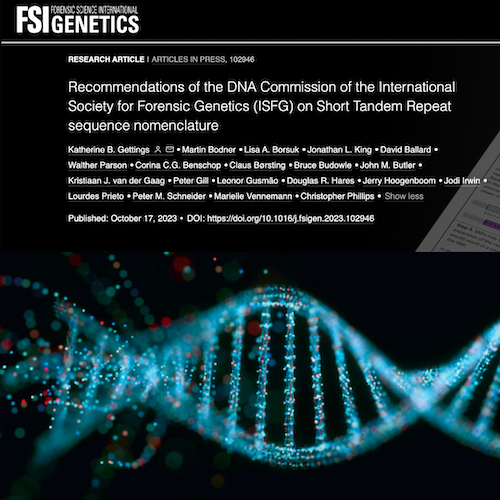
Posted 2 years and 3 months ago by Cíntia Alves (Last modified 2 years and 3 months ago)
Snipper App Suite | New version
A new version of the Snipper App Suite (http://mathgene.usc.es/snipper/) is now available (September 2023). The new version offers a bundle of new tools, which are summarised on http://mathgene.usc.es/snipper/version_history.html.
Posted 2 years and 4 months ago by Cíntia Alves (Last modified 2 years and 1 month ago)
Workshop Recordings | ISFG Summer School 2023
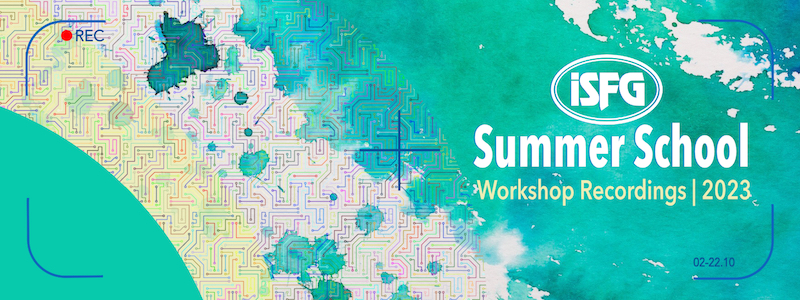
Posted 2 years and 5 months ago by Cíntia Alves (Last modified 2 years and 5 months ago)
Peter M. Schneider Tribute
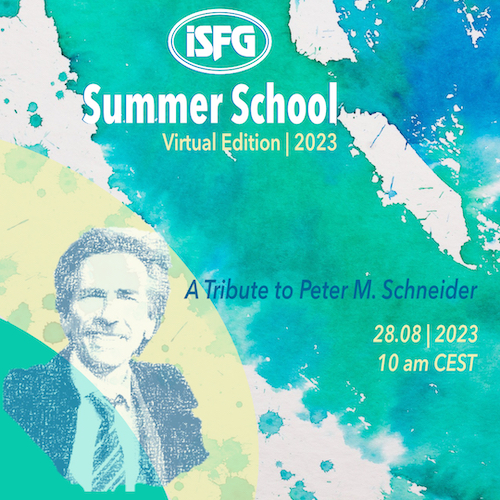
Posted 2 years and 6 months ago by Cíntia Alves (Last modified 2 years and 6 months ago)
New EMBO Member - Manfred Kayser
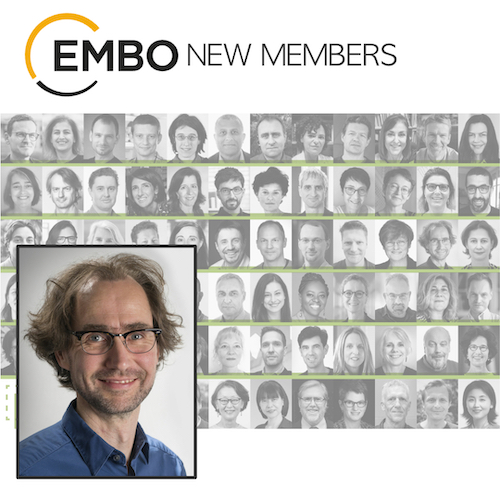
Posted 2 years and 7 months ago by Cíntia Alves (Last modified 2 years and 7 months ago)
First Report by the Forensic Databases Advisory Board (FDAB)
Posted 2 years and 12 months ago by Cíntia Alves (Last modified 2 years and 9 months ago)
ISFG Summer School 2023

Posted 3 years and 3 days ago by Cíntia Alves (Last modified 2 years and 9 months ago)
The ISFG is on Social Media!
Posted 3 years and 2 months ago by Cíntia Alves (Last modified 3 years and 2 months ago)
New versions of EuroForMix and CaseSolver
Posted 3 years and 2 months ago by Dr. Lourdes Prieto Solla (Last modified 3 years and 2 months ago)
ISFG Summer School 2023
Posted 3 years and 3 months ago by Cíntia Alves (Last modified 3 years and 3 months ago)
Passing of Peter Schneider
Posted 3 years and 5 months ago by Dr. John M. Butler (Last modified 3 years and 5 months ago)
SallyAnn Harbison was elected to the New Zealand Royal Society
Posted 3 years and 11 months ago by Prof. Dr. Peter M. Schneider † (Last modified 3 years and 11 months ago)
Impact factor for FSI Genetics reinstated for 2020
Posted 4 years and 7 months ago by Prof. Dr. Peter M. Schneider † (Last modified 4 years and 7 months ago)
New DNA phenotyping page
Posted 4 years and 11 months ago by Prof. Dr. Peter M. Schneider † (Last modified 4 years and 11 months ago)
Congress proceedings from ISFG 2019 in Prague online
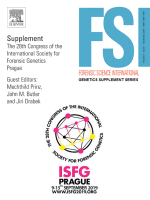
Posted 5 years and 23 days ago by Prof. Dr. Peter M. Schneider † (Last modified 5 years and 23 days ago)
No impact factor for FSI Genetics in 2019
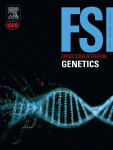
Posted 5 years and 5 months ago by Prof. Dr. Peter M. Schneider † (Last modified 5 years and 4 months ago)
ISFG 2019 conference proceedings available
Posted 5 years and 7 months ago by Prof. Dr. Peter M. Schneider † (Last modified 5 years and 23 days ago)
Forensic Practitioner's Guide to the Interpretation of Complex DNA Profiles
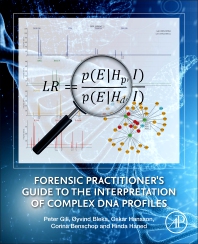
Posted 5 years and 8 months ago by Prof. Dr. Peter M. Schneider † (Last modified 5 years and 8 months ago)
50th Anniversary of the ISFG
Posted 6 years and 2 months ago by Prof. Dr. Peter M. Schneider † (Last modified 6 years and 1 month ago)
ISFG 2021 website updated!
Posted 6 years and 3 months ago by Prof. Dr. Peter M. Schneider † (Last modified 5 years and 9 months ago)
ISFG General Assembly 2019 in Prague
Posted 6 years and 5 months ago by Prof. Dr. Peter M. Schneider † (Last modified 6 years and 5 months ago)
2019 ISFG Science Prizes awarded
Posted 6 years and 5 months ago by Prof. Dr. Peter M. Schneider † (Last modified 6 years and 5 months ago)
ISFG 2019 in Prague has started
Posted 6 years and 5 months ago by Prof. Dr. Peter M. Schneider † (Last modified 6 years and 5 months ago)
2018 Impact Factor for FSI Genetics: 4.884
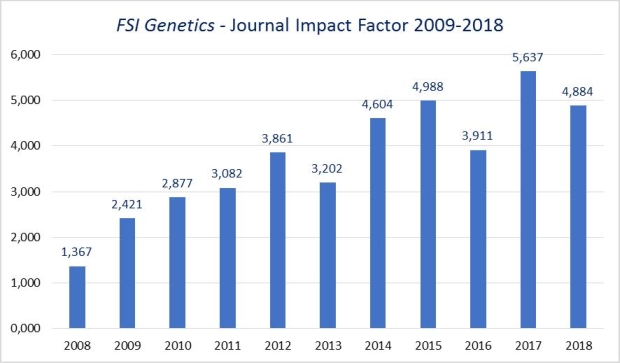
Posted 6 years and 7 months ago by Prof. Dr. Peter M. Schneider † (Last modified 6 years and 5 months ago)
Old ISFH proceedings online for members
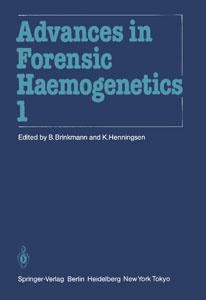
Posted 7 years and 3 months ago by Prof. Dr. Peter M. Schneider † (Last modified 7 years and 3 months ago)
EMPOP4: Next Generation Forensic mtDNA Database
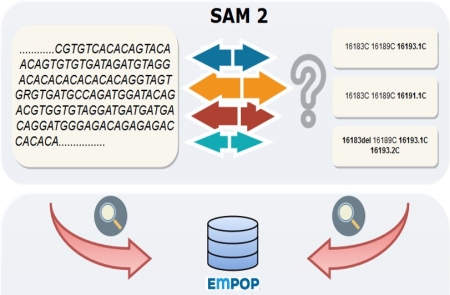
Posted 7 years and 3 months ago by Prof. Dr. Peter M. Schneider † (Last modified 7 years and 3 months ago)
2017 Impact Factor for FSI Genetics: 5.637
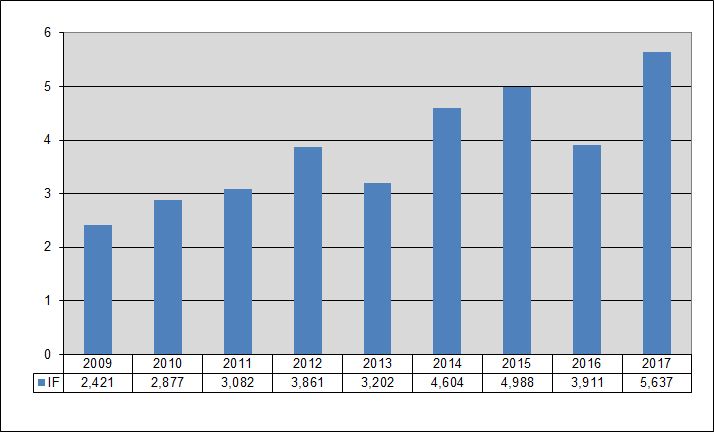
Posted 7 years and 8 months ago by Prof. Dr. Peter M. Schneider † (Last modified 7 years and 8 months ago)
ISFG 2017 conference proceedings available
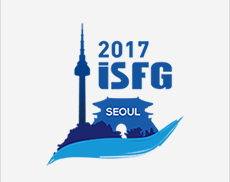
Posted 8 years and 1 month ago by Prof. Dr. Peter M. Schneider † (Last modified 8 years and 1 month ago)
ISFG 2017 presentations online

Posted 8 years and 4 months ago by Prof. Dr. Peter M. Schneider † (Last modified 8 years and 1 month ago)
ISFG Prize awarded to Manfred Kayser
Posted 8 years and 5 months ago by Prof. Dr. Peter M. Schneider † (Last modified 8 years and 5 months ago)
ISFG 2017 in Seoul has started!
Posted 8 years and 6 months ago by Prof. Dr. Peter M. Schneider † (Last modified 8 years and 6 months ago)
ISFG 2017 Seoul: Mobile Conference App!
- Visit the URL on your device: http://guidebook.com/app/ISFG2017/
- Tap the ‘Download’ button to get the free app
- Open the app and log in

Posted 8 years and 6 months ago by Prof. Dr. Peter M. Schneider † (Last modified 8 years and 6 months ago)
X-STR guidelines published by ISFG DNA Commission
Posted 8 years and 7 months ago by Prof. Dr. Peter M. Schneider † (Last modified 8 years and 7 months ago)
Forensic genetics research project VISAGE kicks off
Posted 8 years and 9 months ago by Prof. Dr. Peter M. Schneider † (Last modified 8 years and 9 months ago)
Making Sense of Forensic Genetics
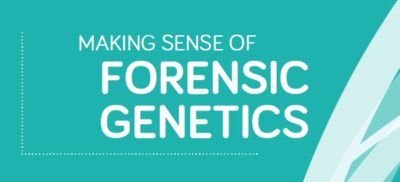
Posted 9 years and 1 month ago by Prof. Dr. Peter M. Schneider † (Last modified 9 years and 1 month ago)
DNA Commission on software validation
Posted 9 years and 4 months ago by Prof. Dr. Peter M. Schneider † (Last modified 9 years and 4 months ago)
Discount for Open Access publication in FSI: Genetics
Posted 10 years and 1 month ago by Prof. Dr. Peter M. Schneider † (Last modified 10 years and 1 month ago)
Proceedings from the 26th ISFG Congress in Krakow published
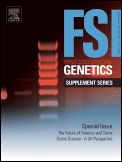
Posted 10 years and 1 month ago by Prof. Dr. Peter M. Schneider † (Last modified 9 years and 4 months ago)
ISFG prize lecture video online
Posted 10 years and 3 months ago by Prof. Dr. Peter M. Schneider † (Last modified 10 years and 3 months ago)
ISFG 2015 Workshop presentations online

Posted 10 years and 4 months ago by Prof. Dr. Peter M. Schneider † (Last modified 10 years and 4 months ago)
Scientific Prize of ISFG 2015 awarded to T. Parsons
Posted 10 years and 5 months ago by Prof. Dr. Peter M. Schneider † (Last modified 10 years and 5 months ago)
ISFG General Assembly 2015 in Kraków
Posted 10 years and 5 months ago by Prof. Dr. Peter M. Schneider † (Last modified 10 years and 5 months ago)
ISFG 2015 in Kraków
Posted 10 years and 5 months ago by Prof. Dr. Peter M. Schneider † (Last modified 10 years and 5 months ago)
The ISFG has a Wikipedia page

Posted 10 years and 8 months ago by Prof. Dr. Peter M. Schneider † (Last modified 10 years and 8 months ago)
2014 Impact Factor for FSI Genetics: 4.604
Posted 10 years and 8 months ago by Prof. Dr. Peter M. Schneider † (Last modified 10 years and 8 months ago)
Obituary for Professor Konrad Hummel
Posted 11 years and 1 month ago by Prof. Dr. Peter M. Schneider † (Last modified 10 years and 7 months ago)
ICMP Established as International Organization
Posted 11 years and 2 months ago by Prof. Dr. Peter M. Schneider † (Last modified 11 years and 2 months ago)
GHEP-ISFG Working Group Received Accreditation for Proficiency Exercise
Posted 11 years and 2 months ago by Prof. Dr. Walther Parson (Last modified 11 years and 2 months ago)
ISFG Scientific Prize awarded to Peter Gill
Posted 12 years and 5 months ago by Prof. Dr. Peter M. Schneider † (Last modified 12 years and 5 months ago)
New ISFG statutes in place
- §2 (1): "The society aims to promote scientific knowledge in the field of genetic markers in the human genome as applied to forensic science. This is to be accomplished by scientific meetings of the society, formation of commissions, meetings of the working groups, and by scientific publications."
- §4 (1): "Any academic graduate, or member of the technical support staff, dealing scientifically with genetic markers, can apply for full membership."
- §4 (5, new section): "The membership is considered terminated, if the annual membership fee according to § 9 has not been paid for a period of at least two years."
- §4 (7): "The membership may not be used for advertising purposes. The Executive Committee can decide to terminate the membership if in spite of a warning this regulation is violated."
- §9 (2): "Membership fees are waived for Honorary Members. For supporting members the annual fee is set to be tenfold the membership fee for full members according to § 9 section 1."
Posted 13 years and 11 months ago by Prof. Dr. Peter M. Schneider † (Last modified 13 years and 8 months ago)
Obituary: Herbert Polesky, M.D.
Posted 14 years and 2 months ago by Prof. Dr. Peter M. Schneider † (Last modified 14 years and 2 months ago)
In Memoriam George Carmody
Posted 14 years and 8 months ago by Prof. Dr. Peter M. Schneider † (Last modified 10 years and 6 months ago)
FSS inquiry results published and hearings broadcasted
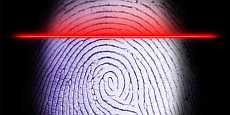
Posted 14 years and 11 months ago by Prof. Dr. Peter M. Schneider † (Last modified 14 years and 11 months ago)
Forensic use of bioinformation

Posted 15 years and 12 days ago by Prof. Dr. Peter M. Schneider † (Last modified 14 years and 2 months ago)
Letter to THE TIMES to support the FSS
Posted 15 years and 2 months ago by Prof. Dr. Peter M. Schneider † (Last modified 15 years and 1 month ago)
Direct access to FSI: Genetics online for ISFG members
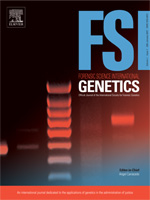
Posted 16 years and 4 months ago by Prof. Dr. Peter M. Schneider † (Last modified 12 years and 5 months ago)
Online payment of membership fees
Posted 16 years and 5 months ago by Prof. Dr. Peter M. Schneider † (Last modified 16 years and 5 months ago)
First Impact Factor for FSI Genetics
Posted 16 years and 6 months ago by Prof. Dr. Peter M. Schneider † (Last modified 16 years and 3 months ago)
Use of ISFG logo on private websites

Posted 17 years and 10 months ago by Mechthild Prinz (Last modified 16 years and 5 months ago)
FSI Genetics launch celebration
Posted 18 years and 1 month ago by Prof. Dr. Peter M. Schneider † (Last modified 16 years and 5 months ago)
Welcome and Farewell
Posted 18 years and 1 month ago by Prof. Dr. Peter M. Schneider † (Last modified 16 years and 5 months ago)
Website design
Posted 18 years and 7 months ago by Sascha Willuweit (Last modified 16 years and 5 months ago)

